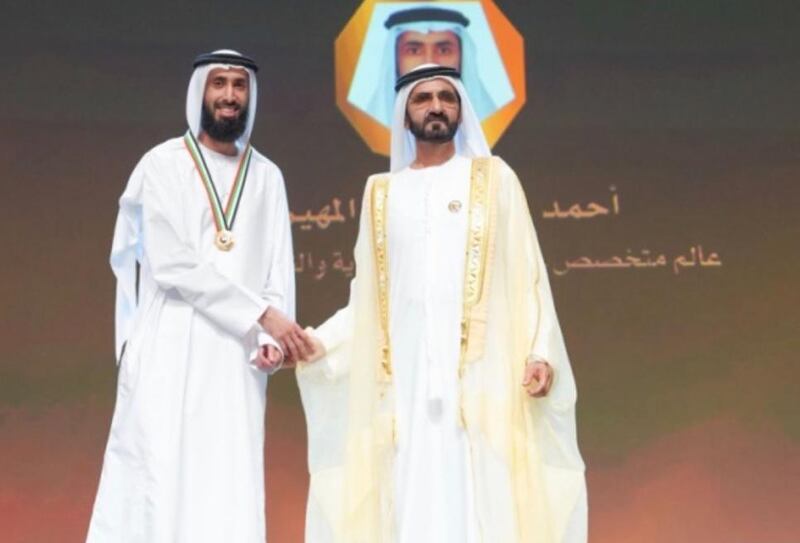It is not every day that people get the chance to applaud the accomplishments of one of their own for a breakthrough in science. Indeed the honour of winning the 'science Oscar', bestowed on Emirati physicist Ahmed Al Mheiri for his research on black holes, is a matter of pride for the UAE and the wider Arab world. For its young people especially, for children newly back at school, navigating a tumultuous year, the recognition is profoundly meaningful in a number of ways.
Mr Al Mheiri along with Netta Engelhardt, Henry Maxfield and Geoff Penington won the prize for New Horizons in Physics “for calculating the quantum information content of a black hole and its radiation”.
Undoubtedly, parents and teachers will be brushing up on their own science knowledge to explain to children what black holes are so that they understand the significance of this momentous discovery.
It becomes, in fact, the duty of every good educator to elaborate not just to curious-minded pupils but to all in class, in an engaging and understandable manner. This is the sort of rare event that needs to be harnessed so to whet the intellectual and scientific appetite of all pupils across grades, and indeed of all aptitudes, be it science or the arts, so that they may acquire an interest that can sustain them for a lifetime.
It is events like these can that can be turning points in the early lives of those with even merely a nascent interest in the workings of the universe. It can pivot their imaginations and nudge them to pick up an encyclopedia and learn more about the vastness of science. At that age especially there is great scope for learning more about these fields and sowing the wish to perhaps some day make as worthy contributions that would make the nation proud.
That Sheikh Mohammed bin Rashid, the Vice President and Ruler of Dubai, referred to Mr Al Mheiri as "the son of the Emirates" is symbolic of the pride the UAE feels at the accomplishments of one of its own. Much like the inspiration the nation's youth derives from the Emirati astronaut Hazza Al Mansouri, who became a household name and triggered interest in space studies.
Similarly, schools would do well to engage pupils in understanding the foundations of the work of Mr Al Mheri and his colleagues at the Institute for Advanced Study in Princeton, New Jersey and encourage young minds to cultivate a genuine engagement with physics and indeed all STEM subjects.
With the distinction Mr Al Mheiri has carved for himself, an entire generation of Emiratis, Arabs and indeed young people all over the world have a new role model in the field of science and engineering.
Serious black hole physics happening in Abu Dhabi!https://t.co/2jxeuiT5Dm
— Ahmed Almheiri (@AlmheiriAE) September 1, 2020
Earlier this month, closer home, we heard of another feat in science. Dr Ingyin Zaw, an associate professor of physics at NYU Abu Dhabi, found a rare black hole at the centre of a small and distant galaxy. Her research was funded by Mohammed bin Rashid Space Centre and the findings were published in The Astrophysical Journal. These are the sort of developments that inspire teenagers and young students, and crucially – add to the mantle of women role models.
Minister of State for Advanced Technology Sarah Al Amiri is a role model for especially young Arab women who might consider pursuing a career in science. She is an example, one among several accomplished Emirati women in scientific research who are leading the way unhindered by the pandemic, as Hend Al Otaiba wrote in these pages "be it going to Mars or commissioning the Barakah nuclear power plant".
Propelled by Mr Al Mheiri's example, it is only a matter of time before more young Emiratis soar to similar peaks. With the country investing heavily in its youth and educational infrastructure, laurels like these can soon become the norm.
The editorial has been amended on September 14. The following change was made: Mr Al Mheiri works at the Institute for Advanced Study in Princeton, New Jersey, not the Institute for Advanced Study in Princeton University.





